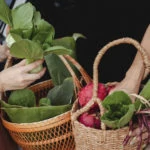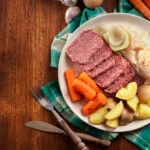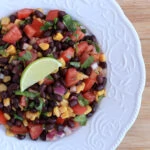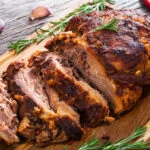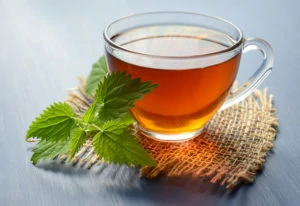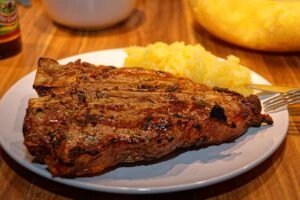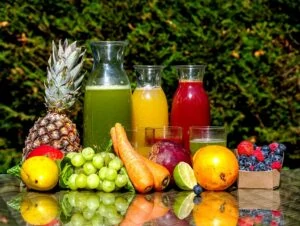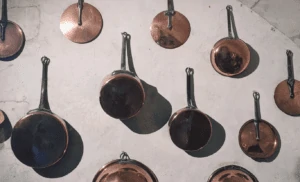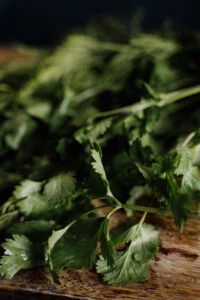This little tac-like spice really packs a lot of flavor and aroma. I’ve been adding it to hot drinks and I’ve revealed its use in several favorite baked goods. Here’s this spice’s history, and how you can incorporate it into your everyday cooking.
What Are Cloves?
A clove is the dried flower bud from the tropical, Indonesian clove tree in the myrtle family. Clove is used as an aromatic spice in Indian cuisine, is a common ingredient in dental hygiene products for its many health benefits, and has also spawned products like clove cigarettes. The clove looks like a miniature spike. Many forms of this spice are ground cloves, clove essential oil, and clove extract.
Clove trees, or Syzygium aromaticum, is an evergreen tree native to the Indonesian Maluku Islands. but before that, in as early as 1720 BCE, oral health cloves were used in the Han Dynasty to freshen people’s breath. They reached India and Africa during the Middle Ages and today grow on nearly every island off of India. Cloves are one of the most important economic crops in the Indian Malukus, along with coconut, cocoa, and nutmeg.
Cloves are dried blossoms. The flower buds from the clove tree are harvested when they turn from pale green to crimson red. The flower buds are dried to preserve the pungent spiciness and use in cooking and medicines.
Ground cloves and whole cloves are used in cooking, and clove extract and clove oil are often used medicinally, especially in dental products since clove has a numbing effect. Clove cigarettes are an Indian cigarette made from a combination of tobacco, clove, and other flavors. Cloves don’t hold much weight per health benefits when consumed in the form of clove cigarette smoking.
Varieties of Cloves
There are several varieties of cloves, maybe important to the clove connoisseurs who I would generalize are in India . . . or not?
- Penang cloves are the plumpest variety, and are reddish-brown
- Zanzibar cloves are small, skinny, and colored black-brown
- Amboyan cloves are cultivated to a large plumpness like the Penang variety
What’s the difference? Zanzibar cloves are popular among farmers because they can be harvested earlier than the other varieties, bringing a faster profit. Overall though, I learned through one paper cited across the internet that not all farmers know exactly what type of cloves they grow. Often their farms were inherited from their parents who didn’t know, and no research has been done to nail down their variety.
Best Ways to Cook with Cloves
Cloves give rich, warm flavor to meats, marinades, curries, and fruit in cuisines of Asia, Africa, and the Middle East. Mexican cuisine uses cloves combined with cinnamon and cumin, and Peruvian cuisine flavors dishes like arroz con leche and carapulcra with cloves.
I love the aroma and flavor of cloves in hot chocolate and coffee, in lemon muffins, and I’ve heard its a must-have in speculoos cookies. One of our favorite recipes using cloves include The Best Slow Cooked Carnitas.
Since clove’s flavor grows in bitterness and strengthens through cooking, always start with a tiny bit and increase through cooking. But don’t cook whole cloves for too long! Too many whole cloves or mulling them for too long also results in that over-powering bitterness.
Ground cloves are often used for baked goods, and whole cloves are used as a mulling spice in chai and other hot beverages, curries, stews, and marinades. Clove extract such as clove oil is used occasionally in baking and making candies. One to two drops of clove essential oil flavors 10 servings of pastries or candy.
Since whole cloves preserve their pungent flavor and aroma longer than ground cloves, I recommend buying just as much ground clove as you need for 6 months, or grinding your own. You can use a coffee or spice grinder, or a mortar a and pestle. Just be aware that plastic grinders tend to absorb the flavor of cloves, and might smell like clove for many months.
Where to Buy Cloves
Cloves, especially ground cloves, can be found in nearly any grocery store in the spice or baking isle. Whole cloves are often found right next to them, but if not, they are available online or at your local spice shop.
How much Do Cloves Cost?
Cloves are one of the most expensive spices, at about $11 per pound. This spice is less expensive than cardamom, which costs $30 per pound, and vanilla, $50 to $200 per pound.
Cloves are so expensive because of their low production. One clove tree produces 2 to 3 kilograms of clove flower buds every year.
How to Store Cloves
Ground cloves hold onto their pungency best for six months, and dry cloves for nearly one year, if stored in a air-tight container in a cool, dark place. Clove oil should be stored in a glass bottle in a cool, dark place for up to four months.
Cooking Substitutes for Cloves
Since the flavor descriptions of cloves often match those of nutmeg, allspice, and cinnamon, these spices work well together as well as as substitutions for one another.
The best substitute for cloves if you want to keep its peppery flavor is allspice. Do a simple 1:1 swap, especially in sweet recipes.
The best substitute for cloves to keep the warming sensation it offers is a 50-50 mix of nutmeg and cinnamon. Combine these and substitute for clove using a 1:1 ratio.
What Do Cloves Taste Like?
Cloves taste subtly sweet, increasingly bitter, and peppery-warm, similar to cinnamon, allspice, and nutmeg.
Are Whole Cloves Edible?
Whole cloves are used in some recipes, however they are usually removed after the cooking is done (similar to bay leaves in a soup). Cloves are edible, however you probably wouldn’t find eating a whole one very pleasant as it would be very strong and probably hard to break down. Your best bet is to add it sparingly in powdered form for recipes that call for it.
According to Ayurveda, whole cloves are eaten and followed by a drink of warm water to still an upset stomach and relieve acne. Consuming whole cloves can lead to overdoses of toxins in cloves however, and reports of agitation and worse, coma.

